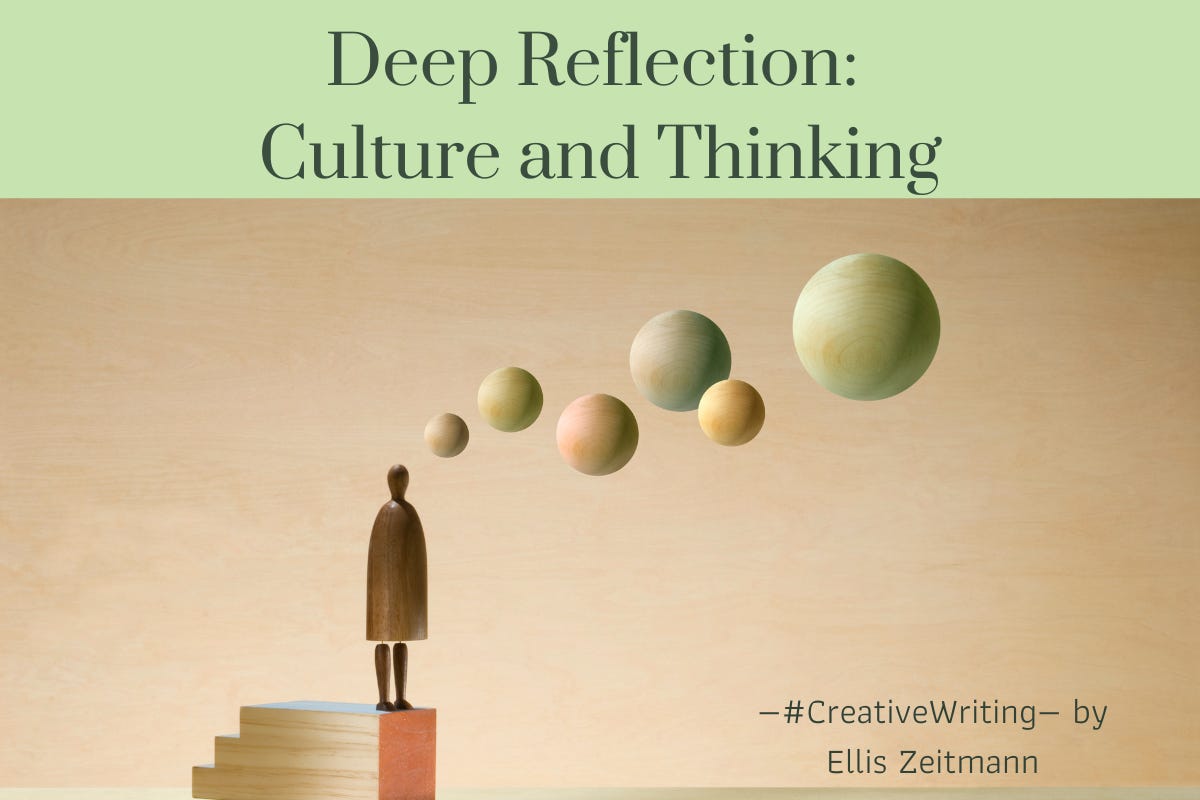Deep Reflection: When Thinking Becomes Living
How Pierre Hadot’s quiet philosophy challenges the performance of knowledge

🖌️ There is a quiet resurgence among those disillusioned by algorithmic truths and fast-talking wisdom. A return to the ancients is underway, not for escape but for reorientation. Yet this revival reveals more than nostalgia; it signals a deeper need: a longing for meaning in an age of noise.
In this cultural drift, one idea gains traction: philosophy is not a discipline; it is a practice. Not a ladder for intellectual prestige but a ground for existential stability.
Enter Pierre Hadot, a philosopher who rejected the sterilisation of thought and reintroduced philosophy as a spiritual exercise.[^1] In his reading, ancient thinkers were not theorists but practitioners, crafting ways of living rooted in intentional thought and moral clarity.
Hadot did not seek knowledge as accumulation. He sought transformation, a shift in perception and a reorientation of the soul.
➤ Philosophy as Interior Architecture
Modern life prizes acceleration. In the marketplace of ideas, articulation moves faster than absorption. We devour books, podcasts, panels. But Hadot’s invitation is subversive:
To slow down thought until it becomes breath.
He saw the ancient schools such as the Stoics, Epicureans, and Cynics not as abstract systems but as ways of being. For them, philosophy was not lecture material. It was an architecture of the self.
From a psychoanalytic perspective, our obsession with high performance in intellectual, professional, and social arenas often serves as a defence against fragility.[^2] We tend to over-identify with our cleverness while avoiding the quieter work of integration.
Hadot proposes a return to this forgotten labour: not to know more but to be more whole.
➤ A Cultural Critique
The current intellectual climate suffers from what could be called the aestheticisation of thought. We want curated quotes and cinematic breakthroughs, but not the discomfort of sitting with paradox.
In contrast, Hadot turns us toward discomfort as teacher. To study philosophy is to confront:
• Death, as the ultimate horizon.
• Time, as a limit.
• Freedom, not as indulgence but as responsibility.
Where contemporary “wisdom” is often reduced to life hacks and motivational frameworks, Hadot brings us back to a discipline of depth. A way of life that resists spectacle and chooses substance.
➤ A Radical Thought
What if the true intellectual is not the one who knows more, but the one who demands less from knowledge?
What if wisdom means not accumulating answers, but dismantling illusions?
In that case, thinking becomes not an activity but a disposition. A state of tension between knowing and not knowing.
Between mastery and mystery.
➤ Reflection
Have we mistaken the performance of thought for its substance?
Are we engaging with philosophy to become, or to appear?
And most importantly: What would it mean to think in order to live, not just to prove we exist?
➤ What’s Next?
As we return to thinkers who refused easy truths, let us remember: philosophy does not belong to ivory towers. It belongs to ateliers, literary cafés, garden courtyards, and quiet minds.
It is not a source of quick answers. It is a slow, radical act of remembering who we are beneath our noise.
A special thanks 🙏 to the quiet thinkers, past and present, who resist intellectual spectacle and choose instead the difficult, intimate work of living wisely.
👉 Subscribe for free to Zeitmann’s Deep Reflections and hit the bell 🔔 for weekly insights across creative writing, timeless leadership, cultural shifts, memory, and the art of meaning. Be continued…
—#CreativeWriting— by Ellis Zeitmann for ThinkZeit
🧷 Footnotes
[^1]: See Pierre Hadot’s Philosophy as a Way of Life (1995), where he reframes ancient philosophical schools as embodied practices rather than speculative systems. His interpretation helped revive Stoicism and Epicureanism as practical paths for modern readers.
[^2]: For psychoanalytic grounding, see Carl Jung’s exploration of the persona and the fragmentation of the self. Also relevant is Erich Fromm’s analysis of the modern “having” mode versus “being” mode in To Have or To Be? (1976).
#DeepReflections #CreativeWriting #EllisZeitmann #PierreHadot #PhilosophyAsWayOfLife #LivingWisdom #CulturalCritique #Psychoanalysis #Existentialism #IntellectualHumility.


